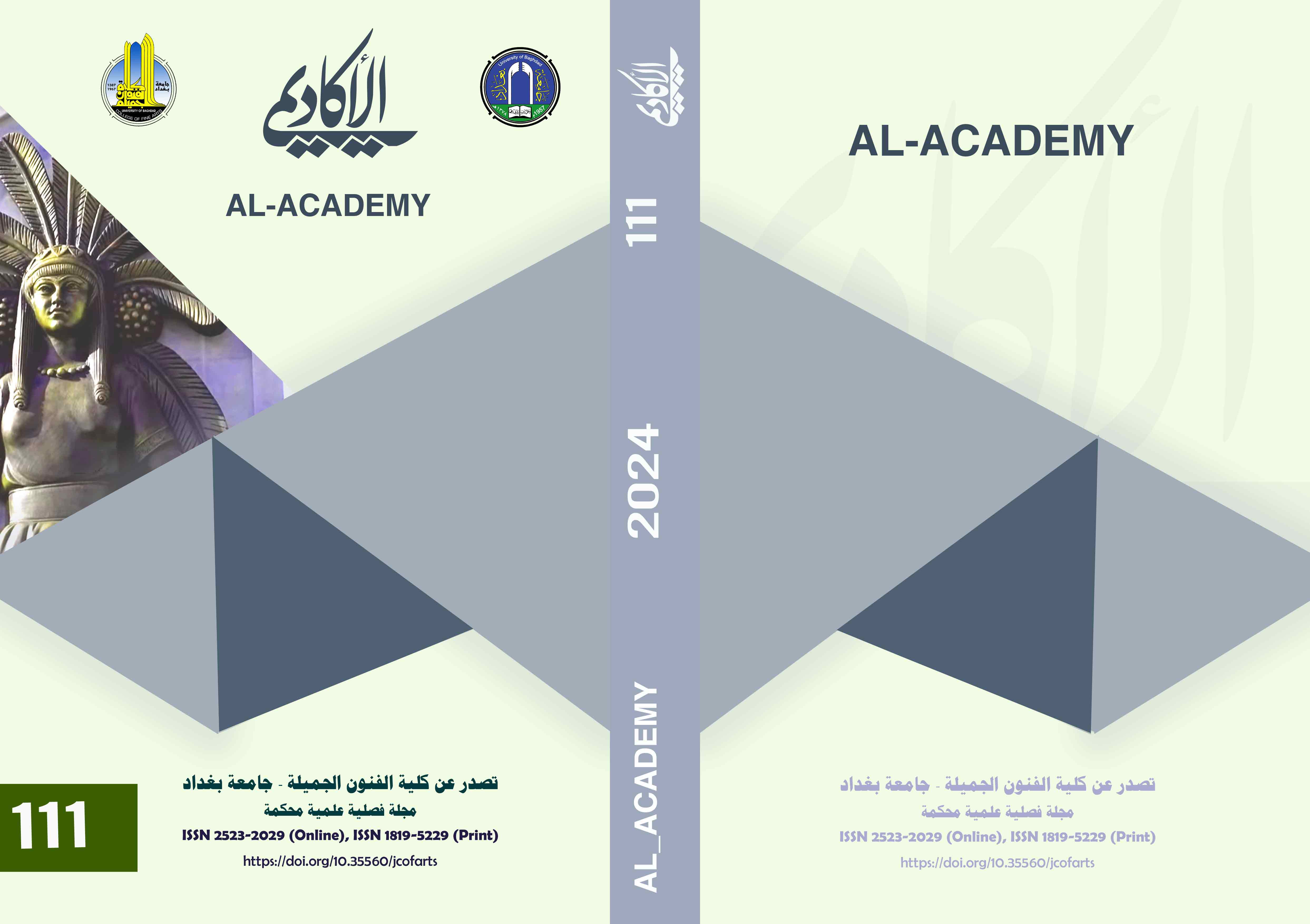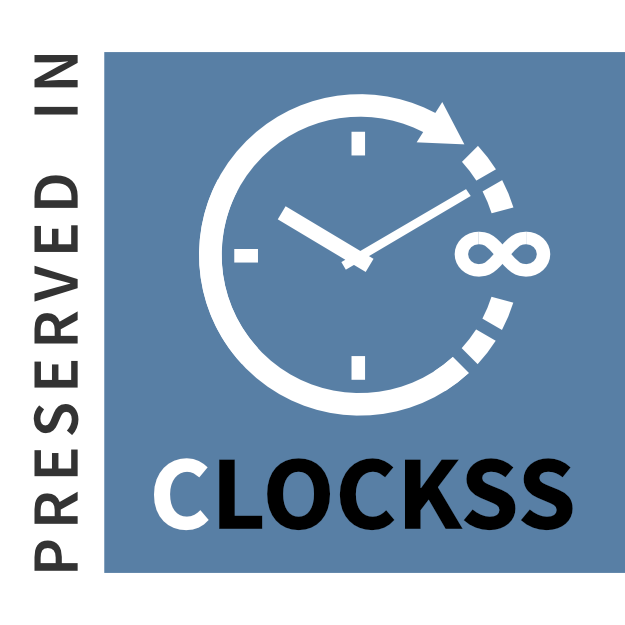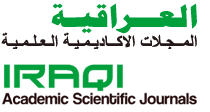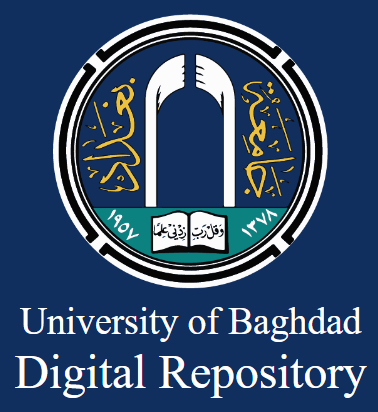Mental flexibility and Its Relationship to Academic Achievement Among Students of Art Education Department
DOI:
https://doi.org/10.35560/jcofarts1268Keywords:
mental flexibility , academic achievementAbstract
The current research dealt with the nature of the relationship between mental flexibility and academic achievement among students of Art Education Department. The research problem was summarized by the following questions:
- What is the level of mental flexibility possessed by students of Art Education Department? Whether it differs according to the student's gender or academic level?
- Is there a relationship between mental flexibility and academic achievement among students of Art Education Department?
The aim of the research refers to the following: To reveal the mental flexibility and its relationship to the academic achievement of the students of Art Education Department. Accordingly, the researcher derived two hypotheses from the aim of the research:
- There is no statistically significant relationship at the level (0.05) between mental flexibility and academic achievement among students of Art Education Department.
- There are no statistically significant differences at the level (0.05) between the arithmetic means of the total scores of mental flexibility and academic achievement according to the gender variable (males and females).
The first chapter included a definition of the limits of the research and the definition of some terms. The second chapter, which is represented by the theoretical framework and previous studies. It included two sections: the first dealt with mental flexibility, while the second was dealing with the researcher about academic achievement, and the chapter concluded with two previous studies. While the third chapter was including research procedures as the researcher was following the descriptive method. The research community consisted of fourth-grade students in the Art Education Department, and the research sample was randomly selected. The research tool represented by the mental flexibility scale was built, As for the fourth chapter, the researcher reviewed the results of the research, and reached a set of results, the most important of which are: the availability of an acceptable level of mental flexibility among the members of the total sample. Hassan, 2017). The reason for this is the students' ability to deal with different situations and adapt to them in multiple ways so that their responses to stimuli are quick and effective, in addition to the cultural and intellectual diversity that university students enjoy. After presenting and discussing the results, the researcher came out with the following conclusions: 1- The students of the Department of Art Education enjoy a level of mental flexibility. This is a positive indicator in that the university environment and the study of the Art Education major stimulate the students’ ability to modify their knowledge structure, as well as increase awareness, attention and flexibility in different educational situations. 2- The presence of a negative indicator between mental flexibility and achievement indicates that this feature is not invested in improving the achievement level of students. In light of the research results, the researcher recommends the following: 1- Holding scientific seminars in universities to encourage the development of mental flexibility skills among university students. 2- Developing scientific curricula and paying attention to them in order to formulate them in a way that ensures the continued openness and activation of students' mental abilities.
References
Abd Almonem Kinanian. (1990). Psychological foundations for creativity and its development methods. Kuwait: Al Falah Library.
Abdel Moneim Ahmed Dardir. ((W.H)). Contemporary Studies in Educational Psychology (المجلد 2). book world.
Abdul Karim Ishaq Khader. (2008). Developing cognitive flexibility and its impact on the acquisition of concepts among a sample of students in the Faculty of Educational Sciences. Jordan: Department of Educational Psychology, Faculty of Educational Sciences, Yarmouk University.
Abdul Sattar Ibrahim. (2002). Creativity issues and applications. Cairo: Anglo Egyptian Bookshop.
Abdul Sattar Ibrahim Mohammed. (1979). The originality of thinking. Cairo: The Egyptian Anglo Library.
Luminous Mustafa Jilali. (2011). Academic achievement (المجلد 1). Amman, Jordan: Dar Al Masirah for publishing, distribution and printing.
Magdi Abdulkarim Hibeeb. (1990). A predictive study of the criteria used to detect innovative children. Journal of the College of Education، الصفحات 48 -74.
Mohammed Pro. (2010). The effect of school guidance on the academic achievement in the secondary stage. ALamel for Printing and Publishing.
Pasho Safia. (2016). The relationship of emotional intelligence to academic achievement among university students. Department of Social Sciences, College of Social and Humanities, Al Arabiya University Bin Mahdi -Umm Al Bouaie.
Salah Sharif Abdel Wahab. (2011). Mental flexibility and its relationship to both the perspective of the future tense and the goals of achievement among faculty members at the university. Journal of Specific Education Research(20)، الصفحات 20-78.
Thanaa Abdel -Wadoud Abdel -Hafez. (2016). Beneficked with knowledge and its relationship to the cognitive flexibility of university students. Professor Magazine، الصفحات 358- 409.
U. D. (1993). factors of academicachievement a comprativestady of high and lowachievers. New Delhi: Northern book centre.
Downloads
Published
Issue
Section
License
Copyright (c) 2024 Naglaa Khudair Hassan

This work is licensed under a Creative Commons Attribution 4.0 International License.













